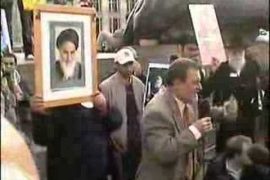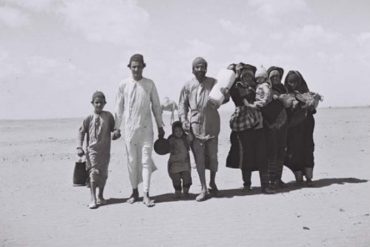1) The ITIC has published an assessment of “The impact of the withdrawal of the American troops from Syria on the campaign against ISIS“.
“From a military perspective, the end of American activity in Syria is liable to be detrimental to the campaign currently being waged by the Kurdish forces east of the Euphrates against last important ISIS-controlled area in Syria. The blow is expected to be particularly hard if America stops its aerial support to the Syrian Democratic Forces (SDF). However, in ITIC assessment, the most serious impact of the American pullout is expected to be its influence on morale and the political situation: the Kurds, who control extensive areas in the northeastern part of the country, feel betrayed and their cohesiveness may be harmed. Thus they can be expected to look for new strategic support, especially from the Syrian regime and Russia. The Kurds’ motivation to continue fighting ISIS may be reduced and they may retreat to the heart of their area of control in northeastern Syria and stop clearing the lower Euphrates Valley of ISIS fighters.”
2) Jonathan Spyer takes a look at the Turkish aspect of the withdrawal of US forces from Syria.
“The contradiction between the western attempt to appease Turkey, and the tentatively emergent strategy vis-a-vis Syria had been apparent for some months. It now looked set to be resolved – one way or the other.
If the US indeed now follows through with the rapid withdrawal of the American military presence in Syria in its entirety, as a number of news outlets have reported and the President appears to have confirmed, then we have an answer. It means that the US has indeed blinked first, and is set on reversing course in Syria – by embarking on a hurried exit from the country. This will be interpreted by all sides as a strategic defeat, an abandonment under pressure of allies, and a debacle.”
3) MEMRI reports on recent criticism of Hizballah in Lebanon.
“Since the parliamentary elections in May 2018, Lebanese Prime Minister and Al-Mustaqbal movement leader Sa’d Al-Hariri has been trying to form a national unity government incorporating all the major political forces in Lebanon, including Hizbullah. His efforts have so far been unsuccessful, however, partly due to steep conditions presented by Hizbullah regarding the government’s makeup, mainly its demand to appoint a Sunni minister from the March 8 Forces, the faction led by Hizbullah. […]
This political crisis, which has been ongoing for over six months, has evoked furious responses from Lebanese politicians and columnists, who accuse Hizbullah of serving Iranian interests at the expense of Lebanon’s, and also of using its weapons to take over Lebanon and of subordinating it to Iranian patronage. The bleak political climate even cast a pall over Lebanon’s 75th Independence Day, marked on November 22, with some calling not to celebrate it because Lebanon is not truly independent. Criticism was also directed at President Michel ‘Aoun and at his son-in-law, Foreign Minister Gebral Bassil, both of them Hizbullah allies, for allowing Hizbullah to effectively control the country.”
4) At the JCPA Amb. Alan Baker discusses “Electing the Palestinian Attorney-General to the ICC Nominations Committee for Judges“.
“The election of the Palestinian Attorney-General, Dr. Ahmad Barrak, to serve as a member of the “Advisory Committee on Nominations” of judges of the International Criminal Court, if it were not so serious, could be seen as comical. It cannot but invoke the ancient Latin maxim “ovem lupo commitere,” or in its literal and colloquial version “to set the wolf to guard the sheep.”
This perhaps sums up the acute absurdity to which respected international institutions in the international community, and particularly the United Nations and the International Criminal Court, have descended. Sadly, they have permitted themselves to be abused and manipulated by an irresponsible Palestinian leadership, intent on hijacking international organizations for obvious and blatant political purposes.
However, the election of a Palestinian representative to the judges’ Nominations Committee, as unwise and ill-advised as it may be, is indicative of a far wider and more serious problem facing the International Criminal Court, with the admission of what purports to be “The State of Palestine” as a party to its Statute.”



